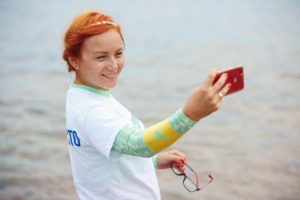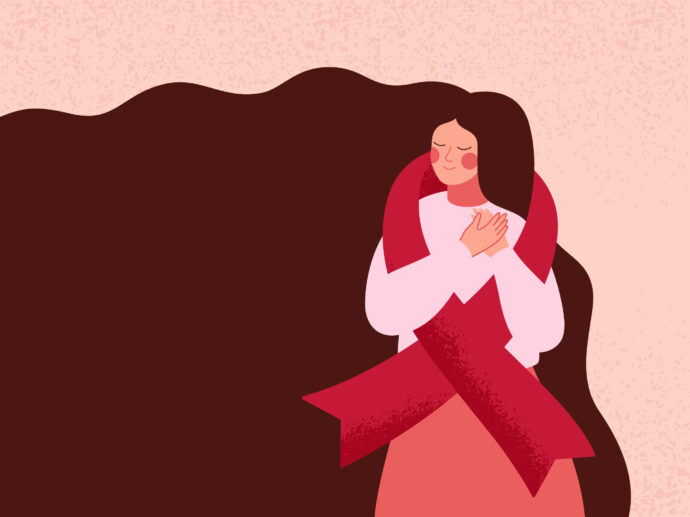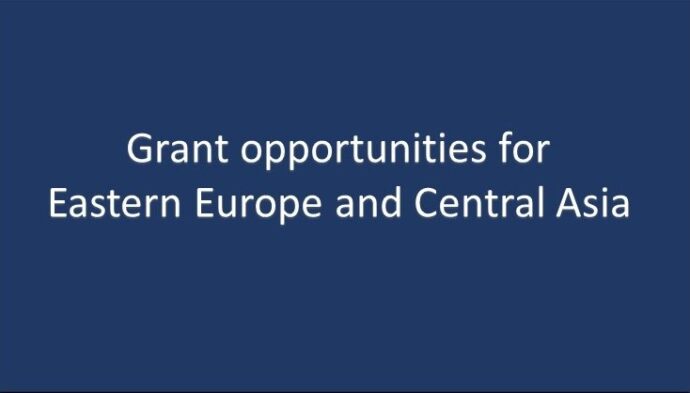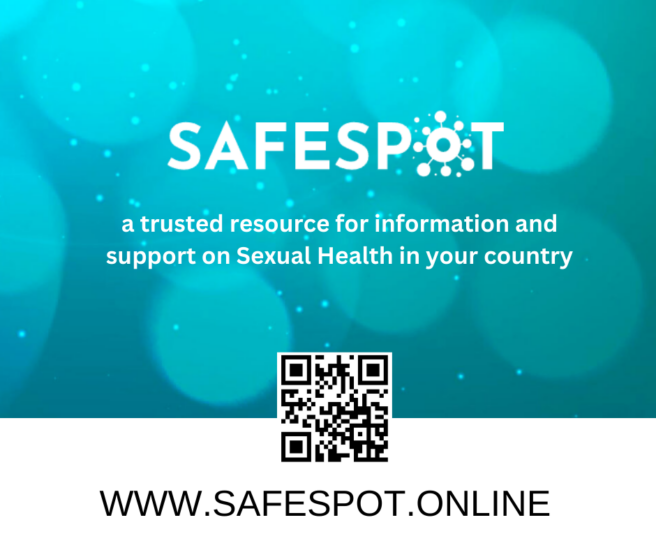Author: Olesya Kravchuk, AFEW International
Svetlana Izambaeva was one of the first women living with HIV in Russia who was brave enough to open her face. Now Svetlana supports other people living with HIV. In summer 2018, Svetlana Izambaeva’s Non-Profit Charitable Foundation held a gathering of adolescents living with HIV with the financial support of AFEW International and other donors. We talked with Svetlana to ask her what was interesting about this gathering in Georgia and why, when we talk about HIV, we also “uncover” other topics.
– Svetlana, could you please tell us how the idea of having a summer gathering was born? Who was able to take part in it?
– It started with our desire to support adolescents living with HIV in Kazan. Later those boys and girls, who had been participating in such meetings for five years, offered to hold a meeting with adolescents from other cities and countries. Several adolescents from Kazan dreamt about going to the seaside. Thus, those adolescents’ dream gave birth to our project #vseprosto (#itseasy). Before, we held one- or three-day workshops in the cities of Tatarstan, Ufa, Nizhny Novgorod, and Irkutsk.
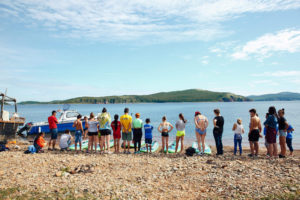 We made a decision on the venue and started sharing information about the event through social media and AIDS centres. The response was immediate. We heard both from mothers of children living with HIV and from adolescents living with HIV. Every person who wanted to attend our event had to fill in a questionnaire based on which we selected the participants. An important eligibility criterion was the awareness of adolescent of his or her HIV status. This year, the meeting in Georgia brought together adolescents aged 11 years old and above from six countries – Russia, Ukraine, Armenia, Georgia, Belarus, and Kazakhstan – and nine cities of Russia – Vladivostok, Irkutsk, Ekaterinburg, Nizhny Novgorod, Kazan, Orenburg, Rostov, St. Petersburg, and Moscow.
We made a decision on the venue and started sharing information about the event through social media and AIDS centres. The response was immediate. We heard both from mothers of children living with HIV and from adolescents living with HIV. Every person who wanted to attend our event had to fill in a questionnaire based on which we selected the participants. An important eligibility criterion was the awareness of adolescent of his or her HIV status. This year, the meeting in Georgia brought together adolescents aged 11 years old and above from six countries – Russia, Ukraine, Armenia, Georgia, Belarus, and Kazakhstan – and nine cities of Russia – Vladivostok, Irkutsk, Ekaterinburg, Nizhny Novgorod, Kazan, Orenburg, Rostov, St. Petersburg, and Moscow.
– How was this gathering different from a traditional summer camp for children?
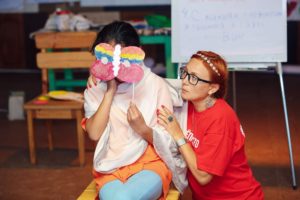 – Our gathering was more than a camp. We had full immersion into the topic of HIV, including all medical and psychological issues. Interactive games and quests help us to reinforce the theory. We raise the questions related to feelings, emotions, and experiences, explore guilt, resentment and pain, acceptance of diagnosis and empowerment. An important factor is that we offer many games on HIV – while playing, adolescents learn about the immune system and realize why they need to take pills strictly in accordance with their schedule. For some adolescents, this is the first time when they meet other boys and girls with HIV. At the gathering, we openly talk about HIV for ten days, which allows “recognizing” and accepting one’s diagnosis.
– Our gathering was more than a camp. We had full immersion into the topic of HIV, including all medical and psychological issues. Interactive games and quests help us to reinforce the theory. We raise the questions related to feelings, emotions, and experiences, explore guilt, resentment and pain, acceptance of diagnosis and empowerment. An important factor is that we offer many games on HIV – while playing, adolescents learn about the immune system and realize why they need to take pills strictly in accordance with their schedule. For some adolescents, this is the first time when they meet other boys and girls with HIV. At the gathering, we openly talk about HIV for ten days, which allows “recognizing” and accepting one’s diagnosis.
– What was your biggest insight during this gathering? Where there any good or maybe bad surprises for you?
– Each gathering has its own story and each one of them is special. Every time, we sit down with the team of trainers and prepare new exercises and new quest games for the adolescents. What is surprising is the depth of feelings and the extent of trust and openness among the adolescents living with HIV. They are all ready to work on their problems but not all of them are willing to do it in a group. From the very first day, we offer individual sessions with psychologists. Besides, one of the insights was that when we uncover the topic of HIV, we bring up deeper topics, such as violence, bullying, and reliance on parents. Parents or guardians may be a negative factor. There was a case when the guardian was not ready to work together all day long and also in the evening. We pay a lot of attention to building knowledge, but information is presented in the format of games and our participants have fun. Though it is just a five-minute walk to the seaside, our priority is keeping up with our agenda and the knowledge to be gained by the adolescents and their parents or guardians.
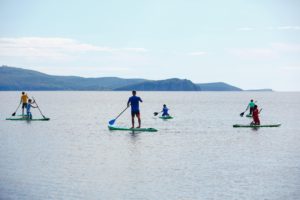 – What challenges did you encounter when planning the event and how did you cope with them?
– What challenges did you encounter when planning the event and how did you cope with them?
– The main challenge was raising funds. We needed money to cover accommodation and meals for the participants, pay the trainers (though three times we did not pay either to trainers or to the logistics provider), to buy stationery, gifts, T-shirts and caps. It was important to have at least five trainers for 30 participants as we had both general activities and small group sessions. We had to find sponsors to cover our costs, and it was not easy. Besides, at our gathering we started training people who would like to conduct similar activities in their regions.
– Why is this event important? Have you achieved the goals that you wanted to achieve?
– This event is important for every adolescent – that is what they say in their comments and follow-up questionnaires. The changes happening with every boy and girl may be tracked through the diagnostic drawings that they do in the first and last days of the event. On the first day, when they are asked what they feel, think and want to do when they hear the word “HIV”, they draw scary images and write “pain, guilt, fear, do not want to talk about it.” On the last day, when answering the same question, they depict strength, confidence, freedom, easiness and desire to support their peers. The event is also important because after it they will not stop taking their therapy and will adhere to treatment. We already see the results of their blood assays. Our event is also aimed at the prevention of suicide attempts and depression.
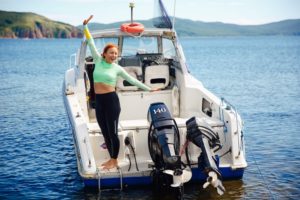 – Do you plan arranging similar events in future?
– Do you plan arranging similar events in future?
– We have already organized and held four gatherings: in 2017 – in Sochi and St. Petersburg, in 2018 – in Ureki (Georgia) and Vladivostok (Russia). We have piloted the programme, trained the trainers and we plan to launch such gatherings in Russia and open centres for adolescents in Irkutsk, Kazan, and Krasnodar region. Next year, we plan to conduct first-level training for new participants in each of the territorial units, hold a gathering in Irkutsk at the Baikal Lake and then – an international event in Armenia. Besides, we would like to hold a meeting and workshop in Moscow suburbs for a team of leaders from all our gatherings.


